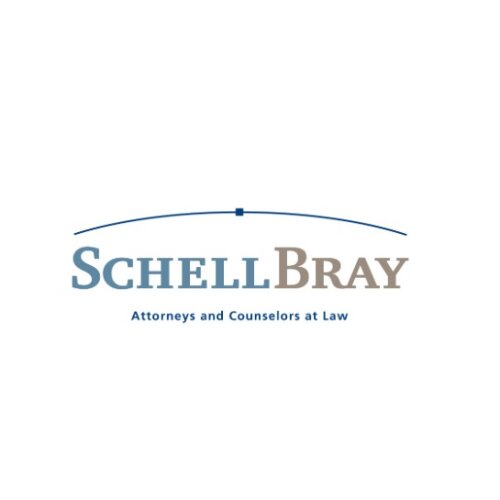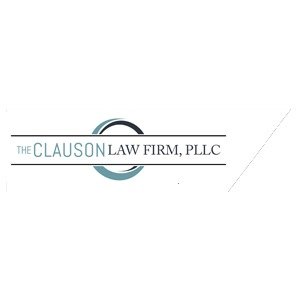Best Corporate & Commercial Lawyers in North Carolina
Share your needs with us, get contacted by law firms.
Free. Takes 2 min.
Or refine your search by selecting a city:
List of the best lawyers in North Carolina, United States
United States Corporate & Commercial Legal Articles
Browse our 1 legal article about Corporate & Commercial in United States written by expert lawyers.
- United States NY LLC Transparency Act 2026 Compliance Guide
- The federal Corporate Transparency Act (CTA) and New York's LLC Transparency Act are separate regimes: reporting to FinCEN does not satisfy New York's 2026 state filing requirement. Most small corporations and LLCs in the United States must file Beneficial Ownership Information (BOI) with FinCEN starting 2024, unless a specific federal... Read more →
About Corporate & Commercial Law in North Carolina, United States
Corporate and commercial law in North Carolina shapes how businesses operate, structure themselves, and interact with others. This legal field covers the formation, governance, and dissolution of corporations, limited liability companies, partnerships, and other entities. It also involves commercial transactions, contracts, mergers and acquisitions, regulatory compliance, and dispute resolution. North Carolina has its own statutes and rules that impact business decision-making, making state-specific legal knowledge vital for both entrepreneurs and established companies.
Why You May Need a Lawyer
Whether you are starting a new business, expanding operations, or managing day-to-day affairs, legal counsel in corporate and commercial matters can prevent costly mistakes and ensure compliance with the law. Common situations where legal help is essential include:
- Choosing the right legal structure for your business
- Drafting, reviewing, or negotiating contracts and agreements
- Handling mergers, acquisitions, or business sales
- Addressing shareholder or partnership disputes
- Ensuring compliance with state and federal regulations
- Protecting intellectual property and trade secrets
- Dissolving a business or handling bankruptcy matters
- Navigating employment law issues and policies
- Responding to investigations or lawsuits
Engaging an experienced corporate and commercial lawyer can help you avoid legal pitfalls, safeguard your interests, and foster business growth.
Local Laws Overview
North Carolina’s corporate and commercial law landscape is shaped by its General Statutes, including specific chapters that address business corporations, limited liability companies, partnerships, securities, and commercial transactions. Key points to consider for businesses operating in North Carolina include:
- Business Entity Formation - North Carolina recognizes several business structures, each with distinct legal obligations and tax consequences. Corporations are governed by the North Carolina Business Corporation Act, while limited liability companies follow the North Carolina Limited Liability Company Act.
- Filing and Annual Reporting - Most business entities must file organizational documents with the North Carolina Secretary of State and submit annual reports to keep their status active.
- Contracts and Transactions - Commercial transactions are subject to the Uniform Commercial Code as adopted in North Carolina. Written agreements are strongly advised for clarity and enforceability.
- Employment Law - North Carolina is an at-will employment state, but businesses must comply with state and federal wage, hour, anti-discrimination, and workplace safety laws.
- Business Taxes - Companies are subject to state and local tax laws, including corporate income tax, franchise tax, and sales and use tax.
- Licensing and Permits - Many businesses require professional or occupational licenses from state or local agencies.
- Dispute Resolution - Business disputes may be litigated in state court or addressed through mediation or arbitration. North Carolina has a specialized Business Court for complex commercial cases.
Frequently Asked Questions
What is the best legal structure for my business in North Carolina?
The best structure depends on your business goals, size, funding needs, and tax considerations. Common options include sole proprietorship, partnership, corporation, and limited liability company. An attorney can help you choose the right one.
How do I register my business in North Carolina?
Businesses are typically registered with the North Carolina Secretary of State. Registration involves submitting documents such as articles of incorporation or organization and paying applicable fees.
What are the annual requirements for businesses?
Most entities must file an annual report with the Secretary of State and keep business records up-to-date. Failing to do so can result in penalties or administrative dissolution.
Are operating agreements or bylaws required?
For corporations, bylaws are recommended to govern internal operations. Limited liability companies are advised, though not always required, to have a written operating agreement to define management and ownership.
What should I include in a North Carolina business contract?
A solid contract should identify the parties, describe the terms and obligations, outline payment and delivery terms, and address dispute resolution. Written contracts are enforceable and reduce misunderstanding.
When am I liable for business debts?
Business owners of sole proprietorships and general partnerships may be personally liable. Corporations and LLCs often shield owners from personal liability, but exceptions can apply for fraud or failure to follow business formalities.
Do I need a business license to operate in North Carolina?
Some businesses require state-level licenses or permits, while others need specific local approvals. The requirements depend on your type of business and location.
What is the North Carolina Business Court?
The North Carolina Business Court is a specialized court handling complex business and commercial disputes, such as those involving shareholder issues, corporate governance, and antitrust matters.
How are business disputes typically resolved?
Disputes may be resolved through negotiation, mediation, arbitration, or litigation. Many contracts specify the method of dispute resolution to be used.
How can I protect my business’s intellectual property?
Intellectual property can be safeguarded through federal or state trademark registration, copyrights, patents, non-disclosure agreements, and internal policies. An attorney can advise on strategies tailored to your business.
Additional Resources
If you need more information or assistance, consider contacting or referring to the following resources and organizations:
- North Carolina Secretary of State - Business Registration Division
- North Carolina Department of Revenue - Business Taxation
- North Carolina Business Court
- Small Business and Technology Development Center (SBTDC)
- North Carolina Bar Association - Business Law and Corporate Counsel Sections
- U.S. Small Business Administration (SBA) North Carolina District Office
- Local Chambers of Commerce
Next Steps
If you believe you need legal advice or assistance with corporate or commercial matters in North Carolina, start by gathering key documents and information about your business. Research prospective attorneys or law firms with expertise in North Carolina corporate and commercial law. Schedule a consultation to discuss your situation, ask questions, and evaluate your legal options. Taking these steps can help you make informed decisions, protect your interests, and ensure your business complies with North Carolina laws and regulations.
Lawzana helps you find the best lawyers and law firms in North Carolina through a curated and pre-screened list of qualified legal professionals. Our platform offers rankings and detailed profiles of attorneys and law firms, allowing you to compare based on practice areas, including Corporate & Commercial, experience, and client feedback.
Each profile includes a description of the firm's areas of practice, client reviews, team members and partners, year of establishment, spoken languages, office locations, contact information, social media presence, and any published articles or resources. Most firms on our platform speak English and are experienced in both local and international legal matters.
Get a quote from top-rated law firms in North Carolina, United States — quickly, securely, and without unnecessary hassle.
Disclaimer:
The information provided on this page is for general informational purposes only and does not constitute legal advice. While we strive to ensure the accuracy and relevance of the content, legal information may change over time, and interpretations of the law can vary. You should always consult with a qualified legal professional for advice specific to your situation.
We disclaim all liability for actions taken or not taken based on the content of this page. If you believe any information is incorrect or outdated, please contact us, and we will review and update it where appropriate.
Browse corporate & commercial law firms by service in North Carolina, United States
North Carolina, United States Attorneys in related practice areas.
Browse corporate & commercial law firms by city in North Carolina
Refine your search by selecting a city.










